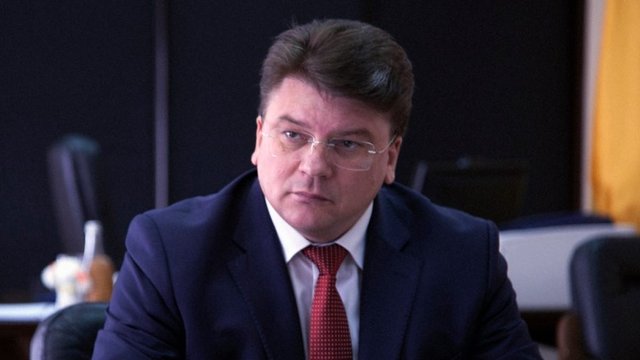Pacta sunt cervanda or about guarantees and painful things

Ihor Zhdanov, Open Policy Foundation, Ukraine Youth and Sport Minister (2014-2019)
Again, we are promised guarantees. Again, they are trying to sell our security for pieces of paper that are loudly called international legal agreements that are mandatory for execution (pacta sunt cervanda!).
It is painful and I do not believe it!
Since not all of us are experts in the field of international relations, historians or lawyers, I will allow myself to recall several international legal documents that either provided security guarantees to Ukraine or recognized its international borders (in chronological order).
1. The Budapest Memorandum on Security Assurances in connection with Ukraine's accession to the Treaty on the Non-Proliferation of Nuclear Weapons is an international document concluded on December 5, 1994 between Ukraine, Russia, Great Britain and the USA. Later, France and the People's Republic of China joined it with reservations.
The Memorandum was not subject to ratification by the parliaments of the signatory countries.
As representatives of individual signatory countries stated, this Memorandum is not binding on them and is a declaration. Therefore, after the large-scale aggression of Russia, they did not provide any security assistance to Ukraine, referring to the fulfillment of obligations under the Memorandum.
One of the signatory countries of the Memorandum, namely Russia, carried out military aggression against Ukraine.
2. Treaty of Friendship, Cooperation and Partnership between Ukraine and the Russian Federation (concluded on May 31, 1997), which recognized the inviolability of existing borders and declared respect for the territorial integrity of both states.
Ratified by the parliaments of Ukraine (January 14, 1998) and Russia (February 17, 1999).
3. The Treaty between Ukraine and the Russian Federation on the Ukrainian-Russian State Border is a bilateral international treaty that defined the land border line between Ukraine and Russia.
Ukraine ratified the agreement on April 20, 2004, the Russian Federation on April 22, 2004.
But as the outstanding German Chancellor Bismarck said, “an agreement with Russia is not worth the piece of paper it was signed on.”
The existence of the “Great Treaty” in force at that time and the Treaty on the State Border, which is still in force, did not prevent Russia from invading and annexing Crimea, launching large-scale aggression against Ukraine, incorporating the territory of five Ukrainian regions into Russia (the Autonomous Republic of Crimea, Donetsk, Zaporizhia, Luhansk and Kherson regions) and demanding international recognition of these territories as Russian.
4. The bilateral security agreement between Ukraine and the United States of America, which was signed on June 13, 2024 by the President of Ukraine Volodymyr Zelensky and the President of the United States Joe Biden and provides for cooperation in the military and security spheres.
The agreement was not subject to ratification by the parliaments of the signatory countries.
With the election of Donald Trump as President of the United States, the document was shelved. Donald Trump forms his foreign policy towards Ukraine based on his own ideas and priorities, and not on the requirements of this document.
Therefore, today Ukrainians are naturally distrustful of the next assurances about the next security guarantees that the USA can provide. Or the statements that come from Russia about some written guarantees of non-aggression against European countries.
It has already happened! (L. Kuchma).
Why is this happening? Why is the fundamental international legal principle violated - treaties must be fulfilled (pacta sunt cervanda!)?
I will try to explain.
Since 2008, when Russia carried out its aggression against independent Georgia, the dismantling of the "Yalta system" of international relations, which was formed after World War II, was consolidated in 1975 in the Helsinki Final Act on Security in Europe and underwent significant changes after the collapse of the Soviet Union in 1991 in the direction of the formation of a unipolar world order.
Before our eyes, the principles of international relations and law that seemed unshakable until recently are being subjected to geopolitical corrosion: the obligation to fulfill international agreements, the inviolability of internationally recognized borders, respect for the sovereignty and territorial integrity of other states, the non-use of force in international relations, respect for and observance of human rights and freedoms.
Once quite authoritative international organizations, such as the United Nations, are increasingly losing their influence on the development of the geopolitical situation, turning into decorative, completely powerless bodies.
The unipolar world formed after 1991 is gradually transforming into a system with two (and possibly more) poles of power. China, which seems quite justified, and Russia are claiming the role of additional poles of power.
Russia's violation of the fundamental principles of international law may become a common and generally accepted phenomenon on the world stage in the future. I fear that this, in turn, will lead to the fact that the "right of the strong", rather than the "force of law", will be the defining principle of the new system of international relations.


